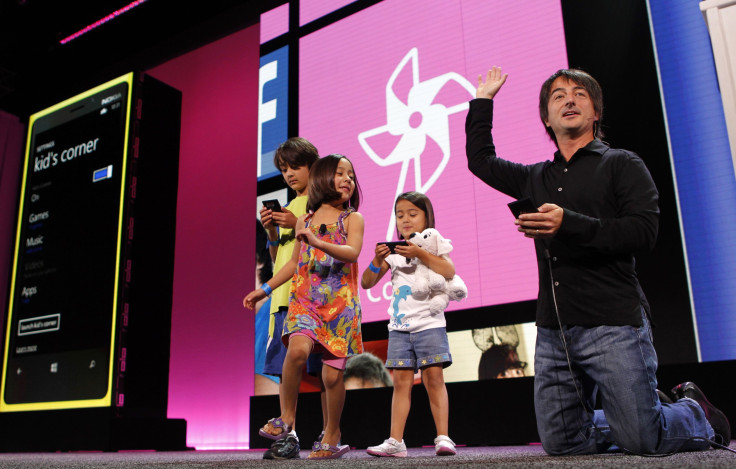Are Smartphones Helping Or Harming Children Under 2? 'Shut-Up Toys' Widespread, But Impact Poorly Understood

It's the modern-day pacifier. Parents of toddlers can now enjoy a peaceful dinner or a quiet car ride, thanks to myriad mobile devices loaded with “kid-friendly” applications, features and other distractions. While there is little research on how interactive media affect children long-term, warning signs are starting to emerge, a commentary published in the journal Pediatrics said Thursday.
There is plenty of research on the impact of TV on children, namely that kids under 30 months, roughly 2 years old, do not learn as well from screens and videos as they do from real-world exchanges. While interactive media such as smartphones and tablets can help children learn by retaining more information, they could also leave children deprived of more important development opportunities.
"It has been well-studied that increased television time decreases a child's development of language and social skills. Mobile media use similarly replaces the amount of time spent engaging in direct human-human interaction," said Dr. Jenny Radesky, an assistant professor at the Boston School of Medicine.
Screens on smartphones and tablets may be no better for kids than TV, despite the proliferation of "educational" apps. Sixty percent of best-selling educational apps for phones and tablets are marketed toward preschool children, according to Edudemic.com.
The American Academy of Pediatrics recommends children under the age of 2 have no screen time with electronics including televisions, computers, smartphones and tablets while children older than 2 should be allotted less than two hours of educational programming daily. In reality, however, children are spending an average of seven hours a day on various electronic devices, the American Association of Pediatrics said.
Yet there are numerous educational applications for electronic devices. A September 2013 study titled “Skype Me! Socially Contingent Interactions Help Toddlers Learn Language” detailed the positive effects of interactive media, such as learn-to-read apps and electronic books, which can help children with early reading comprehension.
Ultimately, Radesky recommends parents be involved in their children’s technology use, noting mobile and interactive media "have great potential to promote learning through joint engagement between caregivers and children.”
She also recommends parents test their children’s apps before allowing them to use mobile devices, and to discuss what the child has learned afterward. This counts as both an enriched experience between parent and child and an opportunity to enhance the educational value of a mobile app.
Extended media interaction has been linked to issues such as obesity, irregular sleep, behavior problems, impaired academic performance, violence and less time for play, the Mayo Clinic said. The youngest person to receive treatment for technology addiction was a 4-year-old girl from the U.K., the Mirror reported in April 2013.
It can be difficult for parents to discern how technology can be harmful to their children. “Because thousands of apps are marketed as educational, parents feel comfortable with this relative increase in screen time," Radesky said.
NPD Group research found in 2012 that 75 percent of parents search mobile app stores for educational and age-appropriate content for their children, providing their children access to an average of 12 applications on mobile devices. But 30 percent of children download apps to their parents' devices on their own, 25 percent of children use the Internet daily by the time they are 3, and 50 percent of children use the Internet daily by the time they are 5, Edudemic.com detailed in a graphic.
Often mobile devices are used as a “shut-up toy” during activities like car rides when parents cannot give children their full attention, Radesky noted. In the long term, unregulated use of electronics can affect young children’s attention span, comprehension ability and various skills including self-regulation, empathy, social skills and problem-solving, which are usually learned prior to starting school.
© Copyright IBTimes 2024. All rights reserved.






















